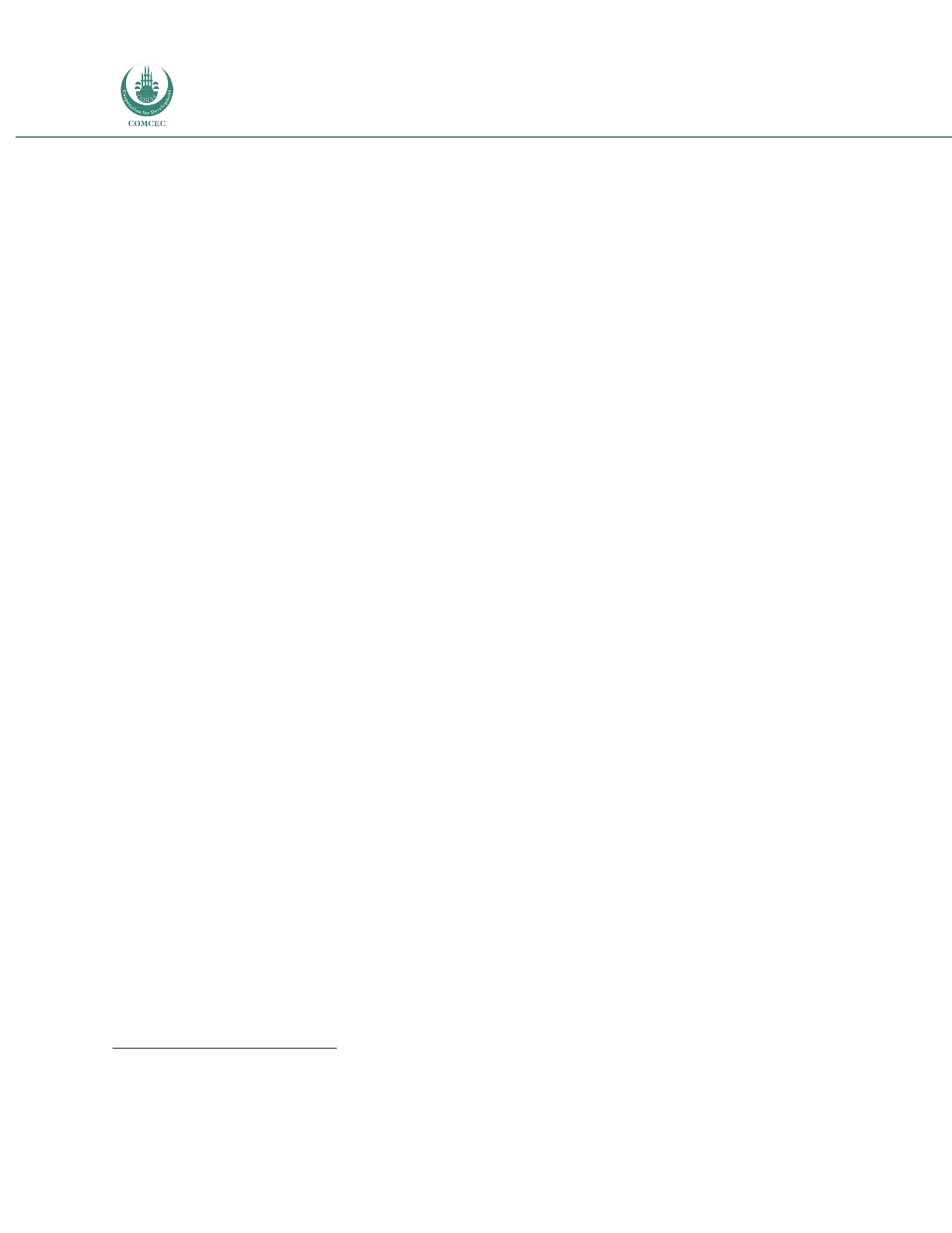

Strengthening the Compliance of the OIC Member States
to International Standards
88
international or foreign standards should be applied (in order of precedence): international standards
(ISO/IEC), European Standards (EN), and if not available, British (BS), German (DIN) or French
standards (NF), American National Standards (ANSI), Japanese Industrial Standards (JIS). For food
products, Codex Alimentarius standards apply. The whole product or commodity must be subject to one
standard only in all its items. This also applies to locally produced goods.
EOS has registered 1,816 companies with international quality systems certifications (300 in the textile
sector, 290 in chemicals, 139 in engineering, 433 in food, 8 in medical, 628 in services and 7 in
miscellaneous), 33 products certified as an Egyptian high quality product (EQM), and there are 75
companies with the Halal mark.
To date, EOS has issued more than 10,000 standards, of which around 10% are mandatory. Food,
chemical, and engineering products have the highest share of standards. Within these sectors, the share
of mandatory standards appears to be the highest in food products (more than 15%) followed by
chemical and engineering products (around 5%).
10
The textile sector has the fewest mandatory
standards, while measurement and documentation are not subject to any mandatory requirements.
Generally speaking, all standards related to public health, safety, and consumer protection are
mandatory. For the standard to become mandatory, a ministerial decree has to be issued by the Minister
of Trade and Industry. An EOS standard may also be made mandatory according to a ministerial decree
issued by the Minister of Agriculture or the Minister of Health. When health or safety are affected, these
Ministers can issue regulations requiring particular specifications to be met and are entitled to mandate
this regulation. These regulations can also be incorporated in the relevant EOS technical regulation.
Government bodies such as EOS, GOEIC and GOEIC-authorized private certification bodies are involved
in conformity assessment. There are currently no product conformity assessment bodies accredited by
EGAC under ISO EN 17065 and, therefore, product certification by EOS is not internationally recognized.
Third party conformity assessment, as it is known in the EU, is also non-existing in Egypt (European
Commission, 2014). To ensure compliance with EU regulations, exporters rely on local representatives
of EU notified bodies, or have the conformity assessment performed in the EU.
According to Presidential Decree No. 392/1979, EOS is the national authority in charge of granting the
Egyptian Quality Mark to industrial goods and products. The quality mark involves testing of the
product as well as the inspection of the whole production line. Egyptian companies should therefore
10
Based on estimations of interviewed EOS officials and from USAID (2006). Recent data on the exact number of mandatory and
voluntary standards per sector are not publicly available.
















